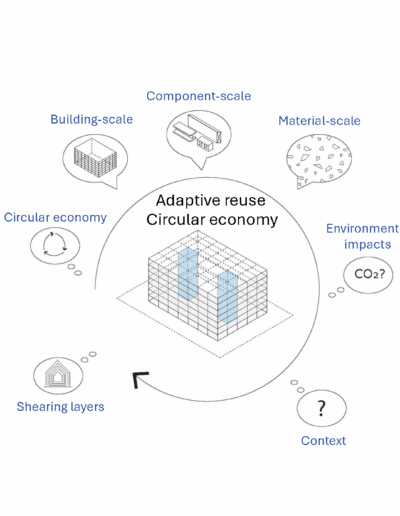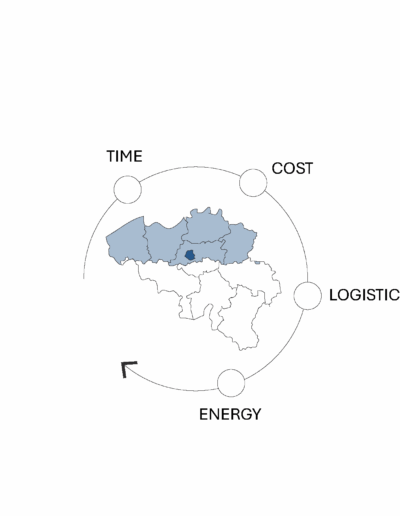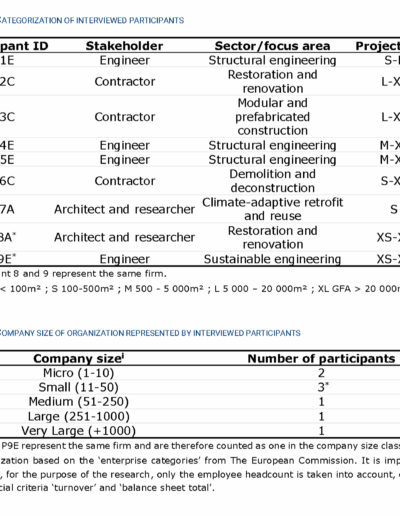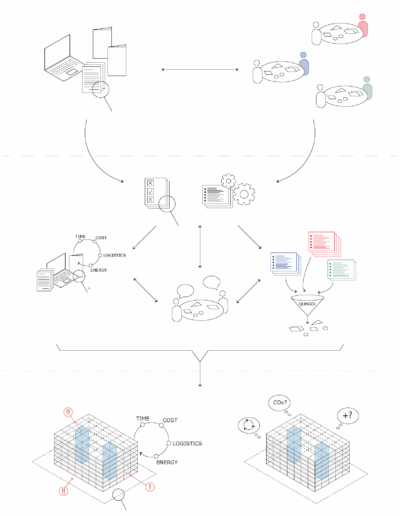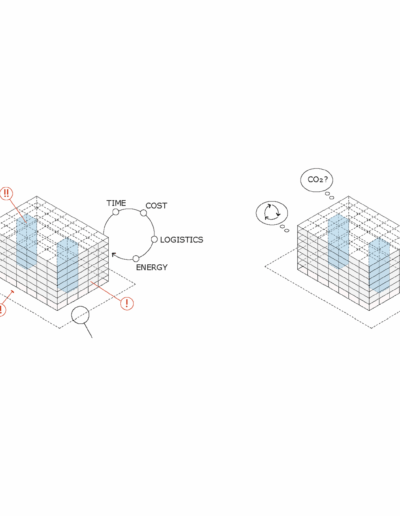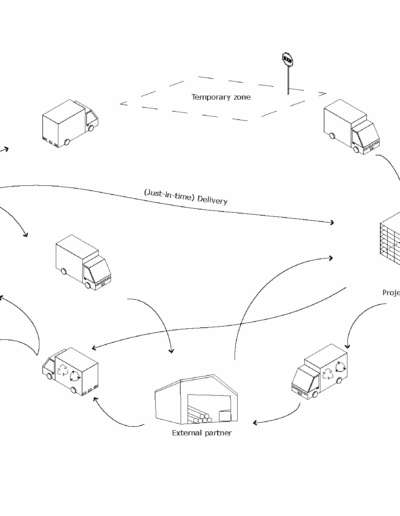EFFORTS OF CHANGE: CONNECTING MATERIAL FLOWS AND SPATIAL INTERVENTIONS IN ADAPTIVE REUSE
Evelyn Vroman
EFFORTS OF CHANGE: CONNECTING MATERIAL FLOWS AND SPATIAL INTERVENTIONS IN ADAPTIVE REUSe
Adaptive reuse is increasingly promoted as a key strategy for sustainable development and circularity in the built environment, yet the technical and organizational complexities of connecting material flows and spatial interventions remain insufficiently understood. This thesis investigates how stakeholders, including architects, engineers, and contractors, perceive and manage the interplay between material efforts and spatial interventions in adaptive reuse projects.
Using a qualitative research approach based on semi-structured interviews with experienced practitioners, the study reveals that the success of adaptive reuse relies fundamentally on the quality and depth of structural assessment. Stakeholders consistently emphasize that early, multi-phased investigation is essential, particularly when original documentation is missing or unreliable. The assessment process is iterative, with findings continuously informing design decisions and revealing the feasibility of interventions in terms of time, cost, logistics, and energy. Key challenges identified include the complexity of creating new openings in load-bearing elements, the risks and costs associated with modifying vertical cores and foundations, and the persistent mismatch between the time and compensation allocated for assessment and the actual demands of the work. The research highlights that thorough assessment reduces risk, supports better project outcomes, and is critical for managing budgets, timelines, and resource use, but also requires systemic changes in procurement, planning, and fee structures to be fully effective. Situated in the Belgian context, this thesis concludes that adaptive reuse can deliver significant environmental and cultural benefits, and that economic feasibility is closely tied to the management of these key indicators. Realizing this potential demands technical rigor, sustained collaboration, and a shift in industry practices to properly value the expertise and effort involved. By foregrounding the lived experience of stakeholders, this work offers evidence-based recommendations for advancing more effective and sustainable adaptive reuse in construction.
Contact
Evelyn Vroman

